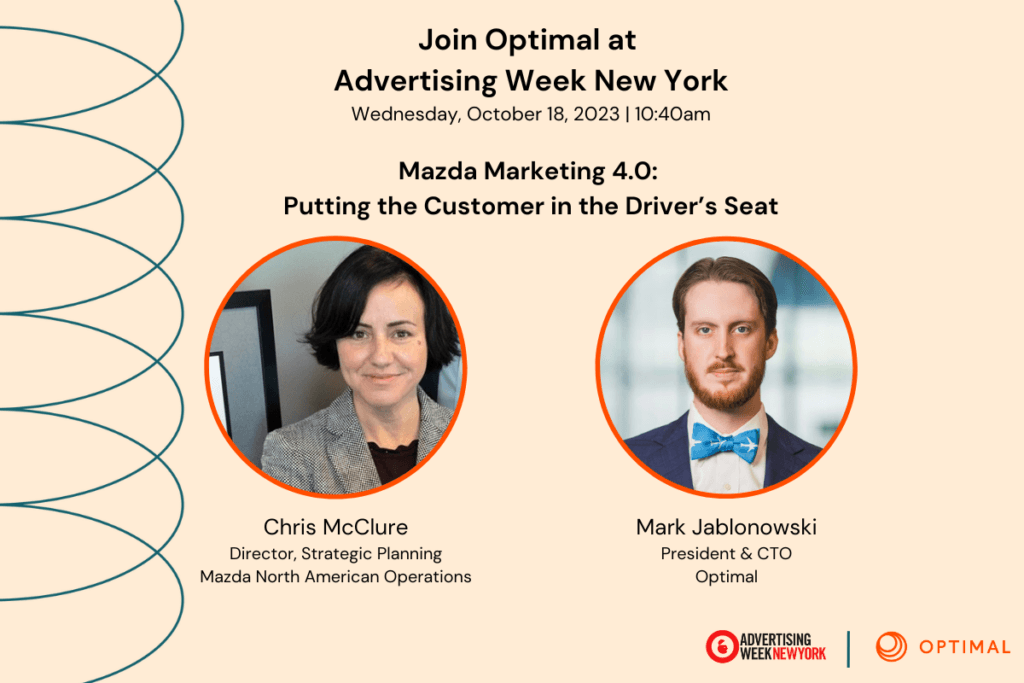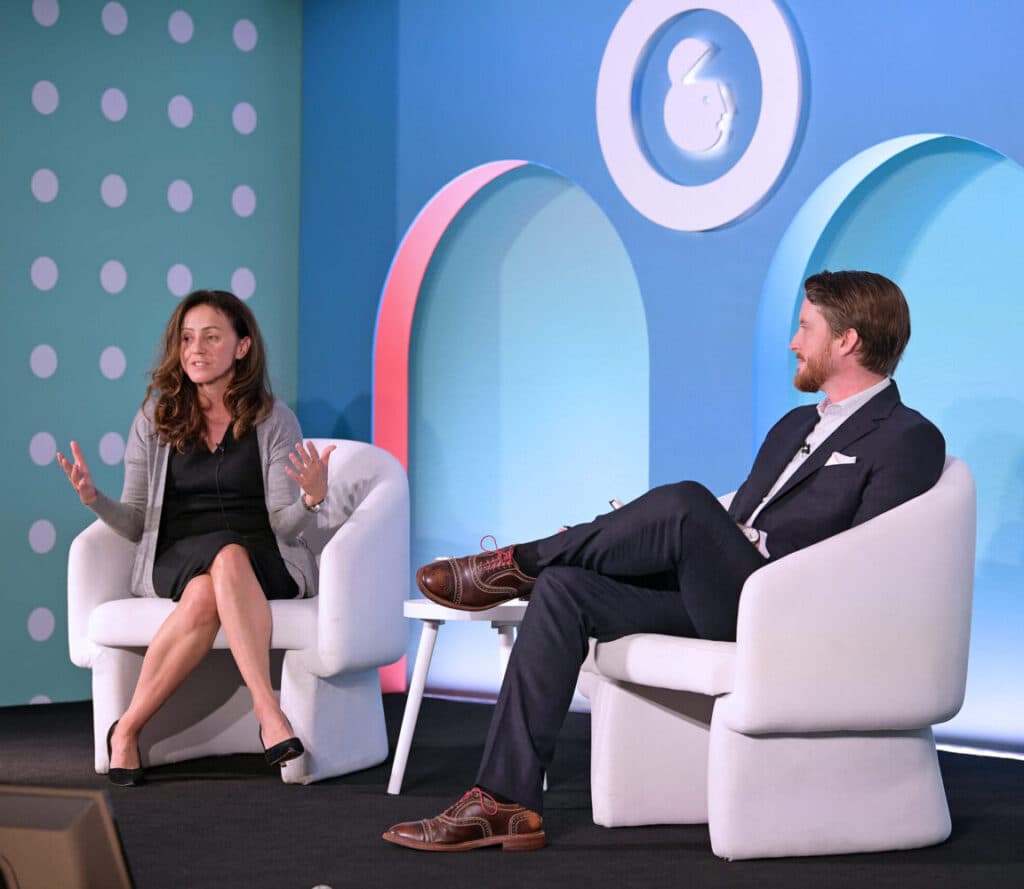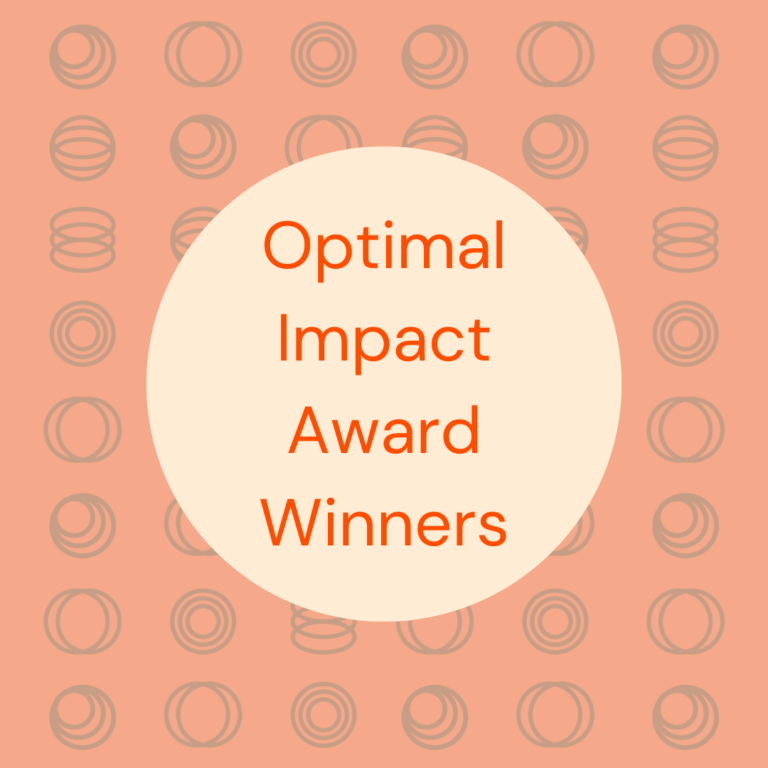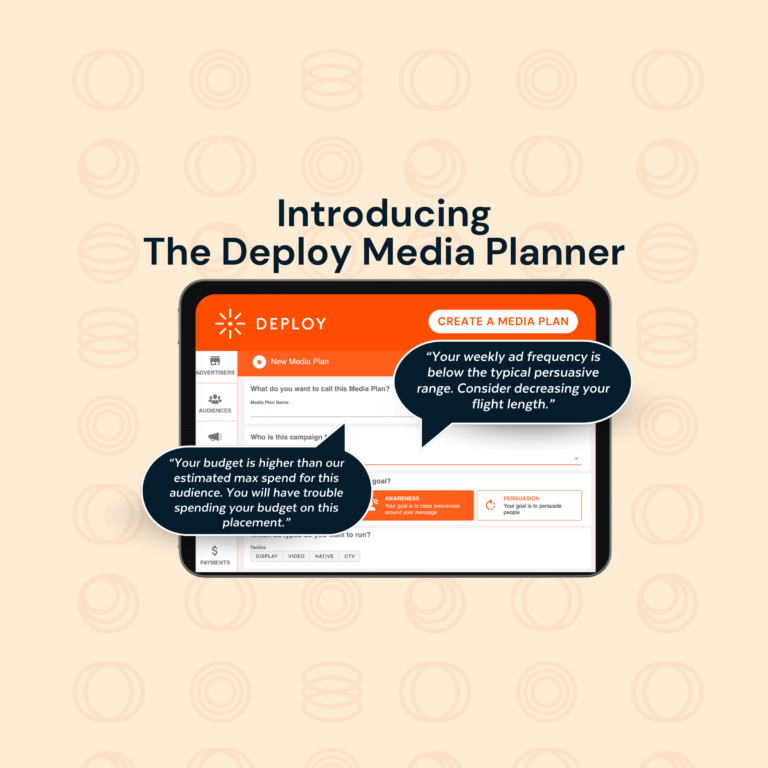“We’ve been impressed by how much Optimal knows about our business and is focused on outcomes.”
Optimal’s Chief Technology Officer and Public Affairs and Politics Division President, Mark Jablonowski, recently sat down with Chris McClure, Director of Strategic Planning for Mazda North American Operations, at Advertising Week New York to discuss the auto manufacturer’s digital transformation. The company's approach to marketing reflects the challenges and opportunities of being a “little guy” in a competitive industry.
In recent years, Mazda has embraced data and analytics, shifted from traditional advertising to focus on customer experiences, undergone a digital transformation to break down silos, and adopted test-and-learn methods to prioritize agility and adaptability. Through these efforts, Mazda aims to deliver personalized experiences, drive innovation, and ultimately enrich the entire customer journey.
Here are five takeaways from their discussion:
1. Smaller companies face unique marketing challenges, but they can also find opportunities for innovation and agility.
With limited resources, smaller companies must be strategic and smart in their approach to marketing. Mazda has embraced its position as one of the "little guys" in the industry and as a result has the flexibility to try new ways of driving innovation.
2. Embrace the importance of data and analytics in your marketing efforts.
The company understands that data is a valuable asset that can help them compete against industry giants. By leveraging data and insights, Mazda can make more informed decisions and create personalized experiences for their customers. They aim to have a 360-degree view of their customers and tap into data to better serve their needs.
3. Mazda's approach to marketing has shifted to focus on experiences and engagement.
They understand that marketing is not just about promoting products but also about creating meaningful and distinctive experiences for their customers. This shift aligns with Mazda's company values, such as Omotenashi, a Japanese hospitality philosophy emphasizing empathy and anticipating the needs of others, especially customers.
4. Prioritize breaking down silos and better collaboration with agency partners.
The company’s marketing team is now seen as a voice for the customer and has greater influence across the organization. This alignment allows for better collaboration and ensures that marketing goals align with overall business objectives. The digital transformation has also allowed Mazda to optimize its relationships with agency partners like Optimal, focusing on outcomes rather than just performance reporting. (Learn more about how Optimal helped Mazda decrease cost-per-qualified-action by a third here.)

5. Test-and-learn plays a crucial role in Mazda's marketing strategy.
As a smaller player in a market being disrupted by major changes, Mazda cannot afford to take big leaps at scale without knowing for certain that they will work. The company relies on test-and-learn methods to experiment, pivot, and adapt quickly based on data signals. This agile approach allows Mazda to navigate uncertainty and stay competitive in a rapidly changing market.





